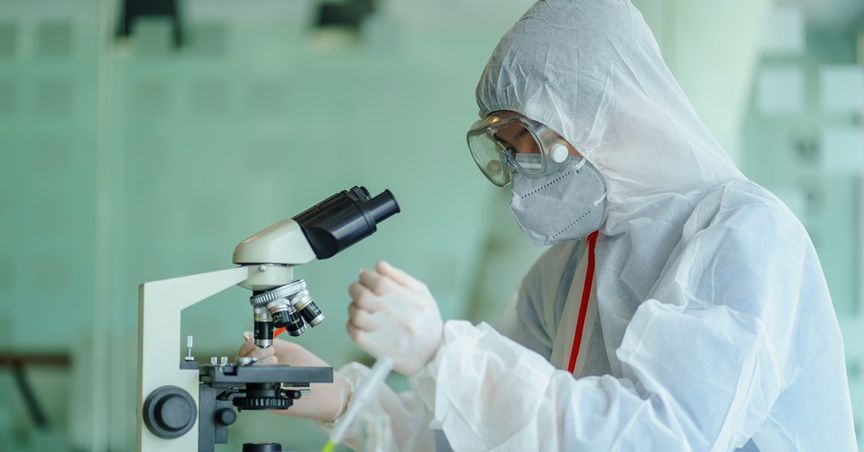The UK has begun the human trial of the coronavirus vaccine in the country. Health Minister, Matt Hancock, in a recent announcement had said that they would conduct human trials of a potential coronavirus vaccine in the United Kingdom; however, there are some uncertainties which need to be considered.
The potential coronavirus vaccine has been developed by scientists at the University of Oxford. The UK Health Minister also promised £20 million of taxpayer money for dedicated vaccine development projects. Imperial College London is another institute trying to develop a vaccine for Covid-19.
The team at the University of Oxford is working day and night to make at least a million doses ready by September even before the trial is complete. In addition, the UK health ministry has also said to be investing in mass production of vaccine manufacturing. If the trials are successful, then they can be made available to the people at a brisk pace.
In order to contain the deadly virus, the world needs a cure. Lockdowns and social distancing are not viable solutions and in various parts of the world, governments are already facing public outcry.
How might the vaccine work?
As the number of global confirmed cases of the novel coronavirus had surpassed two million, the world is in dire need of a cure. The premise of the newly developed vaccine works on the principle of Antibody testing, which helps in increasing the immunity of the body to fight the deadly virus.
With this initiative, the UK will be joining the US and China in carrying out human trails, who are already into it. The researchers have studied the behaviour of drugs already available for treating Malaria, Ebola, and HIV to see if they are effective in treating Covid-19.
Some researchers have tried injecting bioengineered antibodies or Y shaped proteins by taking samples from already cured patients, animals, and previous viruses to see if the antibodies can fight against the virus.
The Health officials, in the hope that transfusions can help save the lives of people suffering from Covid-19, have prioritised these clinical trials that will be supplied with blood samples from recovered Covid-19 patients. These new vaccines would mirror the structure of the infection present in the body and trigger the immune system of the body to produce antibodies to fight against the virus.
Testing facilities scaled up in the nation
Going by some media reports, the UK has done a commendable job on building a network of diagnostic labs in record time. This is supposed to be the biggest network of testing facilities in the wake of the novel coronavirus, which has been completed in five weeks’ time.
Three new sites were set up rapidly (Lighthouse Labs) in Alderley Park (Cheshire), Glasgow and Milton Keynes for increasing the number of testing facilities in the country, with each of the sites being capable of testing tens of thousands of patient samples every day. Each individual site began testing and just took 3 weeks to complete.
These new testing centres are equipped with highly trained staff, volunteers from across the nation. The people are working relentlessly to expedite the testing process for Covid-19, in order to support the National Health Service (NHS), social institutions and the healthcare industry.
Few other nations, like Germany and South Korea, which have reasonably done well in fighting the pandemic, have greatly emphasised the importance of testing its people. In addition, the testing will allow the frontline workers to quickly return to work rather than quarantining themselves.
The new labs are designed on the concept of drive-through. With around 50 new sites coming up shortly, each day across the UK, testing would commence soon. The increased testing capacity would not only help the patients but would also be extended to a wider section of frontline staff and the NHS. The people who are working in delivering essential services and would like to be examined should consult to their employers.
The development of these test labs is basically aimed at carrying out 100 thousand Covid-19 tests in a day. These new mega-labs are backed by country’s world-class scientists and industry veterans and is truly a collaborative national effort. The new test centres have been made through an association with the Department of Health and Social Care, University of Glasgow, Medicines Discovery Catapult, and the UK Biocentre. Both NHS and Public Health England have supported the development.
Many colleges, research organisations and groups across the United Kingdom have given their testing kits to the newly formed labs to expedite the urgent requirement for higher throughput testing. These newly formed labs are supported by a national advisory network of clinical, scientific, and operational experts and are working in collaboration with the British Government, industry experts and practitioners along with the NHS.
The Alderley Park lab is working in close collaboration with AstraZeneca Plc and is aided by the Medicines Discovery project. The Glasgow testing centre is facilitated by the University of Glasgow in a joint effort with the expertise from the University of Dundee and BioAscent Discovery Ltd along with the support of the Scottish Government. The Milton Keynes lab is facilitated by the UK Biocentre, which is financed by the Medical Research Council (MRC) and the National Institute for Healthcare Research (NIHR).
These new labs were designed to rapidly scale up coronavirus testing across the UK based on 5-pillar plan announced by the Health Secretary, Matt Hancock earlier this month. The Pillar 1 deals with those with a medical need and the most critical workers to be tested by scaling up swab testing method in NHS hospitals and Public Health England (PHE) labs. Pillar 2 is about deploying the key workers in the NHS in other sectors, but only after their swab testing is completed. Therefore, the objective is to increase, commercial swab testing. Another objective of the five-pillar strategy is to develop blood tests to identify whether the people across the UK have high levels of immunity to coronavirus along with the right antibodies. Pillar 4 is related to understand the spread nature of the novel coronavirus by carrying out country-wide surveillance tests and help develop new treatments. Pillar 5 altogether takes testing in UK to a whole new level by building mass-testing facilities with scaling capacities.





